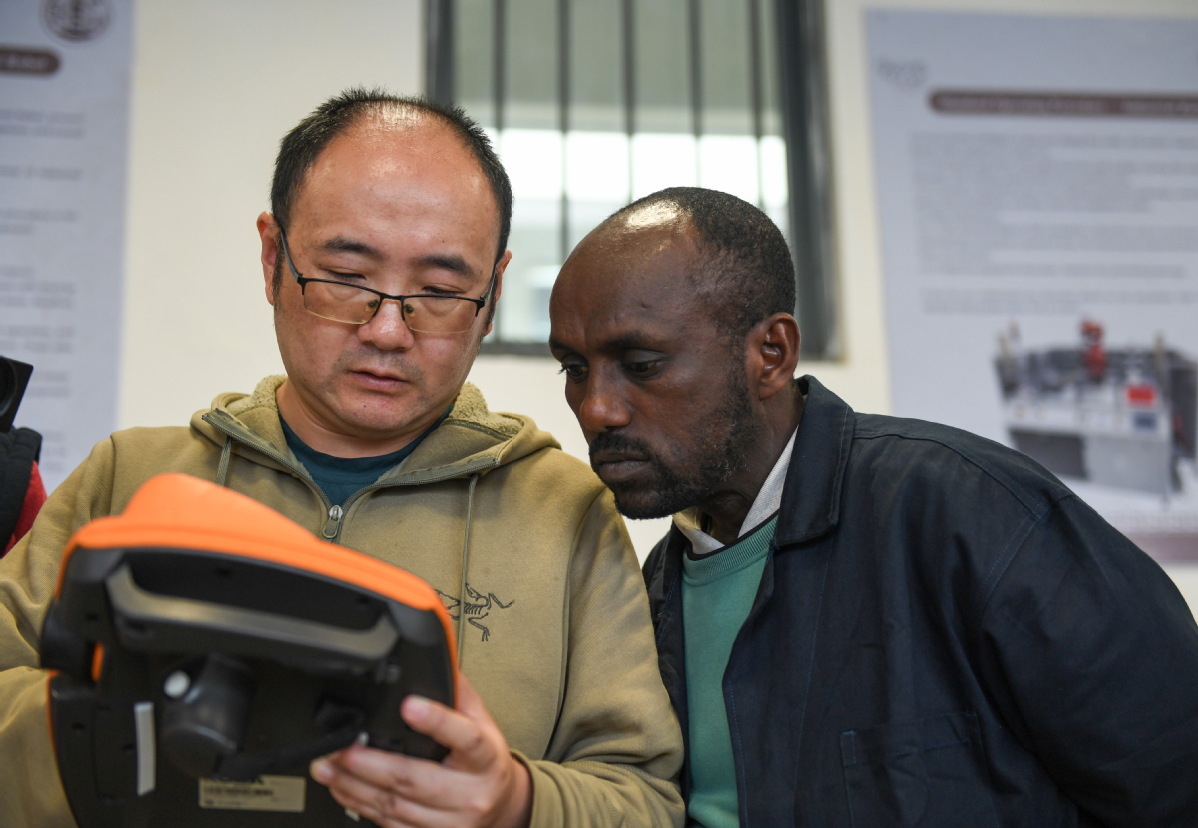China helps Africa on its modernization journey
Shared future thrives on strength of more win-win collaboration


Two-way efforts
"We have together built roads, railways, schools, hospitals, industrial parks, and special economic zones. These projects have changed the lives and destiny of many people," Xi said at a welcome banquet held at the Great Hall of the People for summit attendees, noting that the China-Africa community with a shared future thrives on the strength of win-win cooperation.
This cooperation is driven by development projects with Chinese companies playing an increasing role in bolstering Africa's industrialization.
One notable example is the Sapphire Float Glass Factory in Tanzania's coastal region, which serves both the local market and exports to six other African countries. With a designed production capacity of approximately 700 metric tons per day, the factory has created 1,012 direct jobs for the local populace and 3,857 indirect jobs since its inauguration in September 2023.Once fully operational, it is expected to provide 1,650 direct and 6,000 indirect jobs.
"China's imprints are evident and vivid in infrastructure improvement, rapid industrialization and all progress in small and medium-sized enterprises in our countries," Tanzanian President Samia Suluhu Hassan said at the opening ceremony on Sept 5.
"Our presence here today reflects the solidarity and commitment to building a shared future of progress and prosperity," she said, calling on African countries to work with China toward fruitful socioeconomic innovations and development.
In Botswana, Chinese firms are playing a key role in the country's green energy transition. In August, Botswana Power Corporation signed a power purchase agreement with Sinotswana Green Energy, a consortium of Chinese and Botswana companies, to officially launch the nation's first 100-megawatt solar photovoltaic power plant.
The project, expected to begin operations by the end of 2025, has been hailed a "key milestone" in the country's energy transition.
Driven by the Plan for China Supporting Africa's Agricultural Modernization, China-Africa agricultural cooperation has also flourished, yielding notable results in technical assistance and training for agricultural experts, the transfer of advanced technologies, the establishment of agricultural parks, and the promotion of farming projects for Juncao (mushroom grass) and hybrid rice. This cooperation has advanced Africa's agricultural modernization.
"Agricultural modernization ensures high-level productivity. It reduces the risk of disease and lowers the cost of production. That's the way African countries should go," said Nabwera Daraja Nabii, a member of the National Assembly of Kenya.
China has shared its expertise in Juncao technology and hybrid rice cultivation, training over 14,000 people and introducing these techniques to many countries, benefiting millions of farmers. Dozens of countries across the globe have engaged in research and demonstration planting of hybrid rice, with nearly 8 million hectares planted abroad annually.
Over the past decade, China has established 24 agricultural technology demonstration centers in Africa and introduced more than 300 advanced agricultural technologies, increasing local crop yields by an average of 30 to 60 percent and benefiting over 1 million farmers across the continent.
"We hope that China can work very closely with us so that we can feed the world," said Thomas Tayebwa, Ugandan deputy speaker of the parliament. "Africa can be the food basket for the rest of the world."
Talent development is also vital for both China and Africa as they work to improve their economies and livelihoods, making educational collaboration a cornerstone of China-Africa relations.
China has established 17 Luban Workshops in 15 African countries, providing training to help young African youths secure jobs in Chinese-invested enterprises. Over 220,000 Africans have been trained by China, with tailored programs to meet the specific needs of each country.
Under the Plan for China-Africa Cooperation on Talent Development, China aims to train 500 principals and vocational teachers, as well as 10,000 technical personnel with both Chinese language and vocational skills for Africa every year. This talent cooperation is expanding into sectors like digital industries and healthcare, enabling more African youth to pursue their dreams.
"Vocational and technical education is very important in the 21st century. What you can do depends on the training that you have, and the training that you have depends on the kind of institutions you attend," said Professor Kabiru Bala, vice-chancellor of Ahmadu Bello University of Nigeria.
"Africa is a young continent because we have a large percentage of young people. Our task now is to see that these young people are empowered in terms of skills and competence that can move our developments," said Professor Olusola B. Oyewole, secretary-general of the Association of African Universities of Ghana.
Xinhua




































